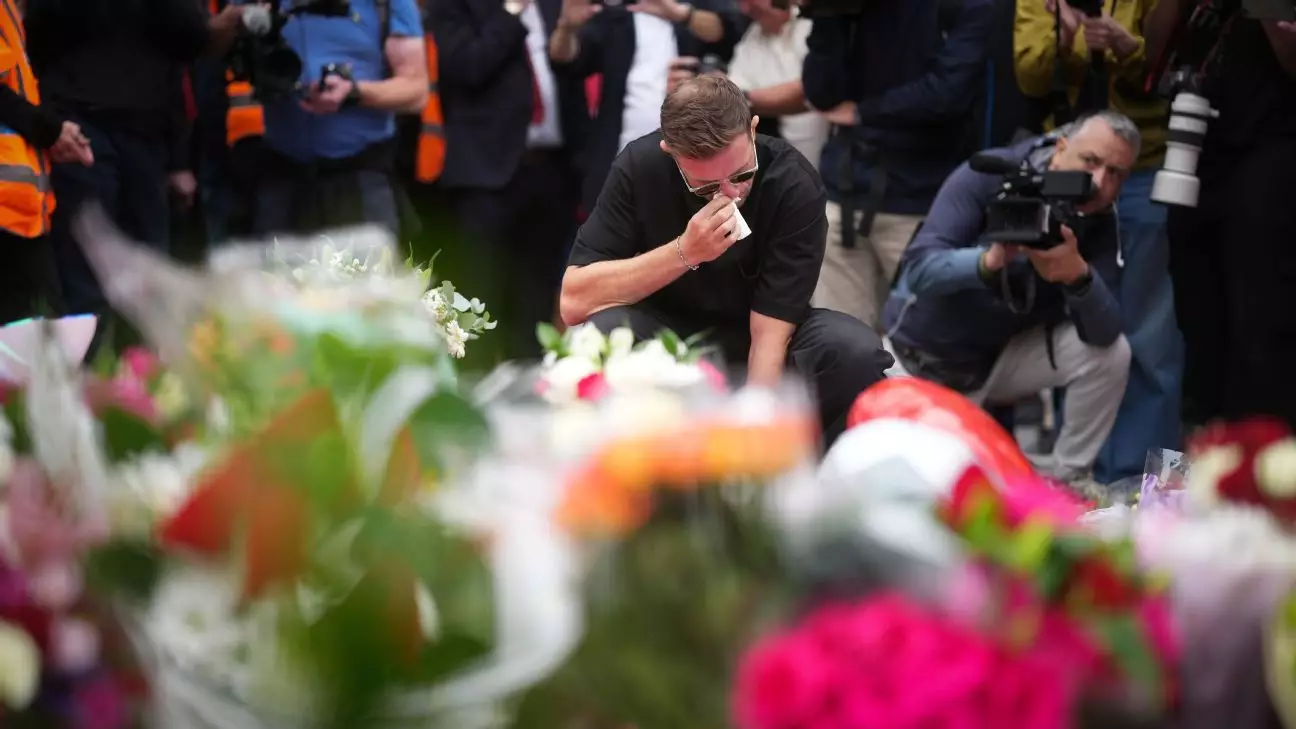In the ruthless arena of professional sports, athletes often become symbols of excellence, resilience, and perseverance. Yet, behind the polished veneer of fame lies the vulnerability of human existence—a bitter truth exemplified by the tragic death of Diogo Jota. This loss is not just about a footballer slipping away prematurely; it’s a stark confrontation with life’s unpredictable and often cruel nature. The collective mourning from Liverpool’s team, fans, and football communities worldwide underscores a sobering reality: no matter how talented or celebrated, mortality spares no one.
Jota’s abrupt departure at just 28 years old, shortly after celebrating personal milestones such as marriage and fatherhood, serves as a piercing reminder that life’s fragility transcends achievement and fame. His death, rendered even more heartbreaking by the loss of his brother in the same accident, exposes a profound truth—our connections, our moments of happiness, and even our lives can be extinguished in an instant, often without warning or justice. It challenges us to confront the superficiality of career success against the raw, unyielding truth of our mortality.
The Emotional Collapse of a Brotherhood: The Pain of Unimaginable Loss
The emotional reactions from Liverpool players—Jordan Henderson’s tearful tribute, Virgil van Dijk’s disbelief, Mohamed Salah’s heartbreak—are more than mere condolences; they are visceral expressions of the deep bonds formed not just through sport but through shared experiences and mutual respect. These athletes, famed for their resilience on the pitch, are helpless witnesses to a tragedy that humanizes them vastly beyond their athletic personas.
Henderson’s grief, expressed through heartfelt posts and tears outside Anfield, signifies how tragedy crushes the barrier between player and fan, friend and brother. These gestures lay bare the raw human pain associated with losing someone so integral to their lives, a pain amplified by the knowledge that Jota’s family—his wife, children, and parents—are now left to grapple with an unthinkable void. The tragedy emphasizes the importance of human empathy over professional distance, a stark reminder that behind every uniform is a human being capable of profound vulnerability.
The Question of Justice and Humanity in the Face of Tragedy
What haunts the collective psyche in moments like this is the randomness of life’s cruelties. An automobile accident claims two lives, stripping away potential, promise, and familial bonds. Such incidents often leave us questioning the fairness of existence, the randomness of tragedy, and whether we have sufficient systems or societal support to prevent such losses.
For Jota’s grieving family, the loss of both a son and a brother is a blow that cuts deeper than any sports injury or career setback. It beckons us to scrutinize how society handles sudden tragedies—are we adequately supporting families in their darkest hours? Are we fostering environments where loss does not become an unbearable burden borne alone? Society’s role, often overlooked by the excitement of athletic achievement, becomes painfully clear in these moments: We must do more to cushion the blow when fate strikes unexpectedly.
A Call for Compassion Beyond the Stadium
The outpouring of grief from football icons like Salah and Alexander-Arnold signals a collective awakening to the importance of human compassion and community. Their words, filled with genuine sorrow and respect, challenge us to prioritize empathy over superficial superficiality and recognition over indifference. These messages illuminate something vital: Life’s true value is rooted not in fame or material success but in the bonds we forge, the love we share, and the support we extend to the suffering.
In the end, Jota’s tragic passing compels us to reevaluate what we hold dear. It urges us to live with an awareness that every moment is fragile, every connection precious, and every life unpredictable. The global grief surrounding his departure is a testament to the power of human connection, the importance of community, and the urgent need to cherish one another before circumstances tear us apart.
> This is not just a sports story; it is a stark reminder that beneath the veneer of victory and achievement lies a fragile, mortal human condition. Recognizing this should inspire us to foster a world where empathy reigns supreme—a world where compassion is the true measure of our humanity.

